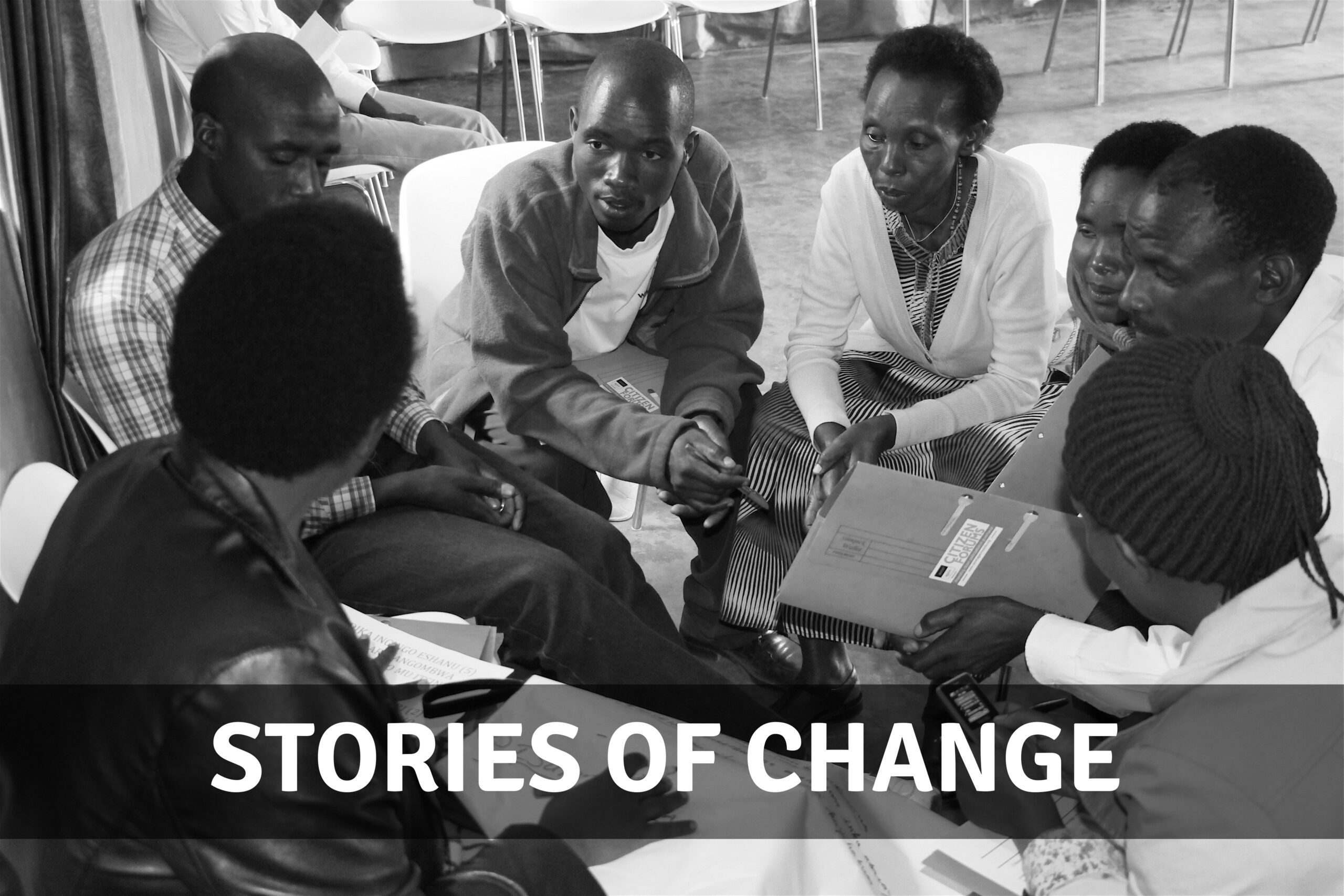Its now easy for me to talk about my psychological wounds
“I used to hear the words Hutu and Tutsi, and I thought we were different. But when I came to this space, I found that we are the same. I did not know what a ‘wound’ is before, but now I am aware of what a psychological wound is like.
It was very hard for me to talk about my psychological wounds within a group of people, but with this space I have got strength to talk about my past. I have parents from different ethnic background: my dad was a Tutsi, and my mum was a Hutu. In the genocide, seven of my siblings died, and six of us survived. This left deep wounds for my mum, so that every time one of us fails to do something, my mum would say ‘if one of my children had survived it wouldn´t be like this!’ I thought Hutus are very bad and violent people. I was living in loneliness and would spend some time crying.
Through the dialogue we had on how you can help someone who has experienced wounds – especially the testimony of Driver Innocent (a member of the space) – I became aware that there are others who have deeper wounds than mine, and it helped me to open up. Before, I thought Twas people cannot greet me – but now we can talk. I mistrusted people. I thought that if I share my story, people would tell others what I have said. But now we trust each other, so I do not fear to share my story.
In brief, I have learnt a lot in this space and I know how I can behave as a result of what we gain from this space.
Mushimiyimana (21 years old)
Abanyamahoro Space for Peace
The Space-for-Peace has boosted my self-esteem – Katabonwa
I have learnt a lot from this space. I had lost the hope for my future, and I mistrusted Hutus. Sometimes I would argue with some of them and my scar would directly hurt me because I remember what they did to me. Makuza (a Peace Agent) brought me into this space. Since arriving here, things are changing. My selfesteem has increased and I have also started helping others in my community. I had a neighbour who had been depressed, so I started talking to her: luckily, my colleague from our space and I visited her recently and repaired her house. Before, she would run when she met a Hutu. But we visited her and she is now changing. Myself, I am no longer scared of meeting with Hutus – now I can tell my children not to discriminate people because those who committed genocide are no longer doing that.
Through our dialogue, I realized that all human beings are the same: even God hates sin, but not the sinners. I have now overcome my phobia. Before, I would never travel in the evening from my house to Kara centre – but nowadays I can go anywhere, at any time. I can say that what helped me most was the process of sharing our testimonies, which really healed my heart. I do have hope that our space will continue to be the source of change, because we have started to go beyond our space and to change other people in our community.
Female Participant (69 years old)
Abanyamahoro Space for Peace
They thought I was mentally ill but the ‘space’ healed my wounds
I had experienced the very deepest psychological wounds. I was very depressed. During the genocide, I was a young child but I was conscious of everything. It was impossible for me to talk to a Hutu. Arriving in this space I have met people of my generation, old men and women, and I started to open up. Now I see that everyone is a human being. I used to hate Hutus to the extent that if I could find them in the church I would avoid going back into that church forever. I was addicted by alcohol, whenever I could remember what happened in genocide I would drink beers in order to forget what happened. All this has changed because when I arrived in this space I founded Hutus, Tutsis and Batwa people are here. When everyone gave testimony of what happened to them, I started changing the way I considered them.
Some people used to say that I was mentally ill person, but being here helped me a lot. Our colleague one day talked about how he hated Tutsi – I realized that I was like him, and that I also hated Hutus. I believe that these changes will continue because they have healed our wounds.”
29-year-old male participant
Abanyamahoro Space for Peace


